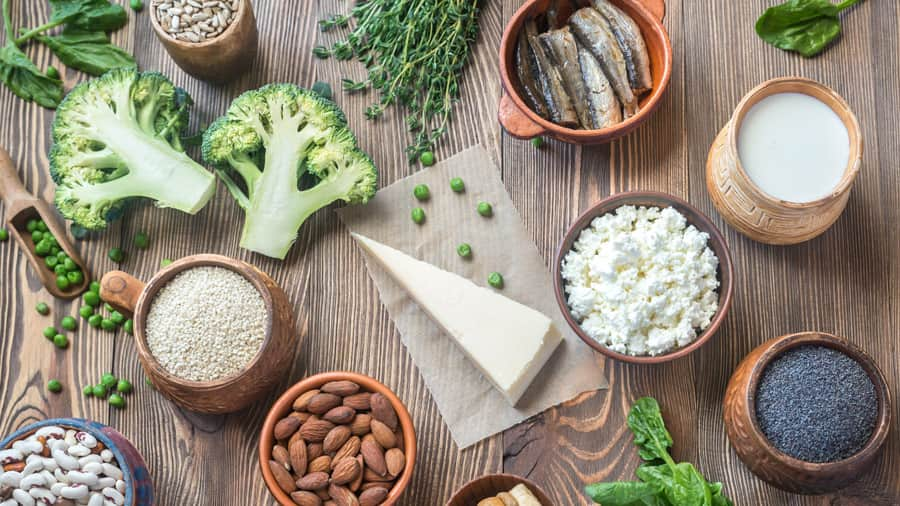Why Calcium?
Your teeth love calcium because they're partially made from calcium compounds. As you age, however, the mineral called calcium phosphate that makes up your tooth enamel can weaken and erode. Consuming calcium-rich foods helps fortify teeth and can actually protect tooth enamel. What's more, calcium can also contribute to healthier gums, which means it can protect against cavities and gum disease.
How Much Calcium Do You Need?
The Indian Council of Medical Research (ICMR) recommends 600-800 mg/day of calcium which increases to 1200 mg/day in pregnant and lactating mothers. Bone loss and tooth decay can increase as you age or if you have certain risk factors like a family history of osteoporosis.
Other risk factors include taking medication that can cause weak bones or being lactose intolerant. You can take supplements if you're not getting enough calcium, but it's easy to meet your daily requirements with healthy, calcium-rich foods.
Calcium Rich Foods to Eat
When you think calcium, you probably think milk and other dairy products. A 250 ml cup of milk contains 300 mg of calcium, which means you'd meet your daily requirements with just three and a half cups. But if you don't like milk or you're lactose intolerant, the National Osteoporosis Foundation suggest finding calcium in a number of other delicious options.
- Orange juice. A cup of calcium-fortified orange juice comes packed with 300 mg of calcium. If you're sensitive to acidic foods, however, it's best to opt for a low-acid version or find another way to get your daily calcium.
- Fish. Who knew that fish was such a great source of calcium? Add 85 grams of sardines to your pizza for 325 mg of calcium, or choose 110 grams of heart-healthy salmon for 240 mg.
- Leafy greens. Leafy greens are a surprising source of calcium. A 70 g serving of kale boasts 180 mg, while the same amount of collard greens offers 360 mg for healthier teeth and bones. Mix a green salad, or if you don't love the taste of leafy greens, whip up a smoothie with yoghurt and bananas to sweeten the flavour while still reaping the benefits.
- Beans. If you love a good pot of chili, you also love your teeth. Baked beans have 320 mg of calcium per serving, while soy beans have 175 mg. Mix them into your favourite soup or toss them into a salad for a boost of calcium at lunch.
- Almonds. Nature's perfect snack comes with a hefty dose of calcium, according to Time Magazine. With 25 mg of calcium per 10 g, you can stash almonds in your bag for a quick pick-me-up.
When it comes to oral health, calcium is a no-brainer. It helps fortify teeth and keeps your gums healthy. You don't need to reach for a glass of milk to meet your daily requirements. There are plenty of other calcium-rich foods in your fridge or pantry. By aiming to get your daily 1,000 mg, you'll help protect your smile in the most delicious way possible.
This article is intended to promote understanding of and knowledge about general oral health topics. It is not intended to be a substitute for professional advice, diagnosis or treatment. Always seek the advice of your dentist or other qualified healthcare provider with any questions you may have regarding a medical condition or treatment.
ORAL HEALTH QUIZ
What's behind your smile?
Take our Oral Health assessment to get the most from your oral care routine
ORAL HEALTH QUIZ
What's behind your smile?
Take our Oral Health assessment to get the most from your oral care routine













